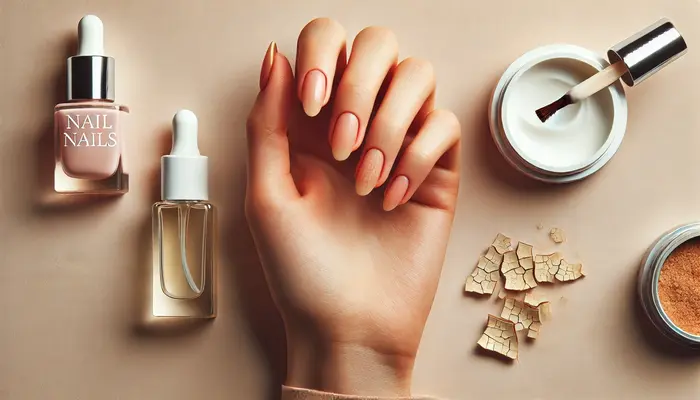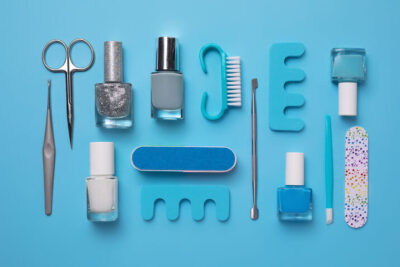Blog
Effective Solutions for Brittle Nails in 2025

Brittle nails, or in medical terminology onychoschizia, are a very common nail problem faced by people. These nails crack, split, or break easily and can be painful and less than aesthetically pleasing. But what’s behind brittle nails — and how can you treat them? So let’s look together at the reasons for brittle nails and some solutions to fortify them.
What Causes Brittle Nails?
Environmental Factors:
The most common reason for brittle nails comes with environmental exposure. Regular washing and drying of hands can mean you are stripping the nails of their natural moisture, resulting in dryness and brittleness. On the other hand, overexposure to moisture can also break down nails, leaving them weak and prone to splitting.
Nutritional Deficiencies:
Today we will discuss how poor diet can affect your nail health. Minerals like biotin, iron, and zinc can cause nail structure to weaken when deficient. These nutrients are essential for strong and healthy nails, and should be part of a balanced diet.
Health Conditions:
Plantar fasciitis, hypothyroidism, Raynaud’s disease, and skin conditions such as psoriasis and eczema can also cause brittle nails. These conditions either impair the body’s ability to absorb nutrients or cause damage directly to nail health.
Aging:
Our nails do become more brittle as we get older, naturally. This is because less oils and moisture are produced, which are important for maintaining the flexibility and strength of the nails.
Effective Treatments and Home Remedies for Brittle Nails
Moisturizing and Hydration:
The best way to treat brittle nails is keeping them moisturized. Use a moisturizer frequently, particularly after washing your hands. Try creams that have urea, phospholipids and lactic acid, which help hold moisture inside the nails.
Nail Hardeners:
If you have soft, brittle nails, then a nail hardener may be helpful. These are products that will give your nails the added-strength they need to avoid splitting. However, use these sparingly, describe dermatologist Jessica Wu, also the more you use the nails, the harder they become and the more they are in danger of breaking.
Protective Gloves:
When doing household chores, be it washing plates or using cleaning agents, wear gloves to protect your nails from excess moisture and constant exposure to harsh chemicals.
Dietary Adjustments:
Eat foods high in biotin (such as eggs, nuts, and legumes), iron (red meat and spinach), and omega-3 fatty acids (fish and flax seeds). These nutrients are essential for strong, healthy nails.
Professional Advice:
If your nails are still brittle despite home care, it may be time to see a dermatologist. They can offer professional treatments or diagnose underlying health issues that may be causing the problem.
Frequently Asked Questions
What vitamin is responsible for brittle fingernails?
Splitting fingernails are frequently a symptom of a shortage in biotin or iron. These nutrients play important role in keeping your nails strong and healthy. Inadequate levels of protein and zinc likewise lead to brittle nails.
What is the most effective treatment for brittle nails?
Moisture is one of the best treatments for nails that crack or split. Nourish your nail very often with a hydrating lotion or nail oil. Also, a nail hardener applied sparingly will strengthen the nails and wearing rubber gloves at home keeps the nails away from harsh chemicals and over-washing.
What is the number one reason for brittle nails?
Frequent wetting and drying of the nails is the most common cause of brittle nails. This cycle dries the nails out, resulting in a nail that’s brittle. Environmental factors also play a role, like living in a dry climate or during winter months.
Why are all my fingernails splitting and breaking?
Frequent splits and breaks of fingernails can be caused by a lack of moisture or too much moisture, environmental stress, and nutritional deficiencies. It may also be caused by external damage from harsh manicures, the use of acetone-based nail polish removers, or physical trauma.





